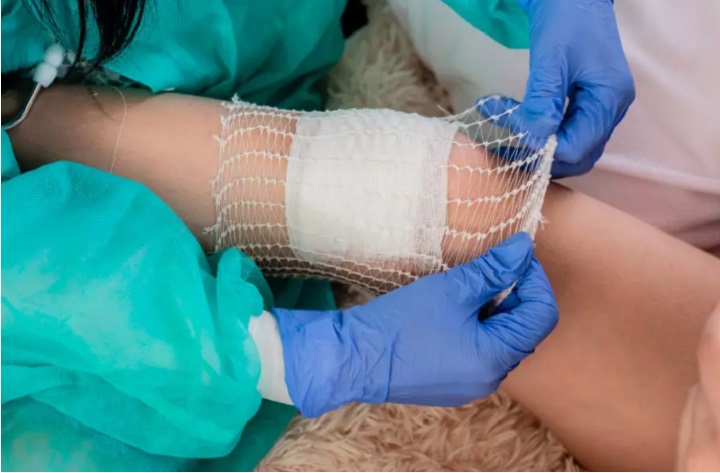Chronic wounds represent a significant healthcare challenge globally, affecting approximately 2.21 per 1000 people. The burden of these wounds is growing due to factors like aging populations and the increasing prevalence of conditions such as diabetes, vascular diseases, and obesity. Pallav Dave, a regulatory compliance analyst based in Kentucky, USA, has conducted an in-depth review, titled “The Challenges of Chronic Wound Care and Management,” which explores the complexities and hurdles in managing chronic wounds effectively.
Chronic wounds are defined as wounds that do not follow the normal healing process and remain open for extended periods. These wounds, which include vascular ulcers, diabetic ulcers, and pressure ulcers, have a significant impact on patients’ quality of life by causing pain, infections, and even death. For instance, diabetic ulcers have a 40% mortality rate five years post-occurrence, and 85% of all amputations are attributed to ulcers, with diabetic ulcers accounting for 75% of all lower limb amputations.
Dave’s review highlights the multi-faceted nature of chronic wound care, emphasizing the need for a comprehensive understanding of the wound healing process, which includes four stages: hemostasis, inflammation, proliferation, and remodeling. Chronic wounds often stall in the inflammation phase, characterized by excess cytokines, proteases, reactive oxygen species (ROS), and senescent cells, which hinder proper healing.
One of the critical factors in chronic wound management is addressing bacterial biofilms, which are present in up to 90% of chronic wounds. These biofilms, formed by bacteria that attach to the wound bed, create a protective membrane that impedes antibiotic treatment and slows tissue repair. Effective management involves understanding and mitigating various factors that impair wound healing, including diabetes, poor nutrition, smoking, local tissue factors, systemic factors like age and obesity, and ensuring proper wound bed preparation.
Dave advocates for a holistic approach to managing chronic wounds, which includes thorough patient and wound assessments to identify underlying issues and comorbidities. This holistic approach should incorporate proper nutrition, glycemic control for diabetic patients, optimizing mobility for patients with pressure ulcers, and using compression therapy for venous ulcers. Furthermore, wound bed preparation using the Tissue Infection/Inflammation Moisture Imbalance Epithelial Edge Advancement (TIME) concept is crucial for optimizing wound healing.
Infection control remains a critical component, and it is recommended to assume all chronic wounds are infected to provide appropriate care. Swabs and biopsies help diagnose infections accurately, and topical antimicrobials are preferred over systemic ones for treating superficial infections, though caution is advised to prevent antimicrobial resistance.
The research underscores the importance of a multidisciplinary approach to chronic wound care. By integrating comprehensive patient assessments, personalized care plans, and advanced wound management techniques, healthcare providers can significantly improve patient outcomes. Dave’s study promotes a standardized approach to wound care, ensuring consistent and effective treatment protocols that can be adapted globally.
The implementation of the TIME framework and the emphasis on proper debridement techniques are particularly noteworthy. These strategies facilitate faster healing and reduce the risk of complications associated with chronic wounds. Additionally, Dave’s research highlights the role of patient education and lifestyle modifications in managing chronic wounds, ensuring patients are active participants in their care.
About the author
Pallav Dave is a regulatory compliance analyst based in Kentucky, USA. With a deep understanding of healthcare regulations and a commitment to improving patient outcomes, Dave has dedicated his career to addressing complex healthcare challenges. His latest research on chronic wound care and management reflects his expertise in identifying critical issues and advocating for comprehensive, multidisciplinary approaches to enhance healthcare delivery. Dave’s insights contribute significantly to the ongoing efforts to mitigate the burden of chronic wounds and improve the quality of life for affected patients worldwide.
Google scholar link: http://ajdhs.com/index.php/journal/article/view/70



















